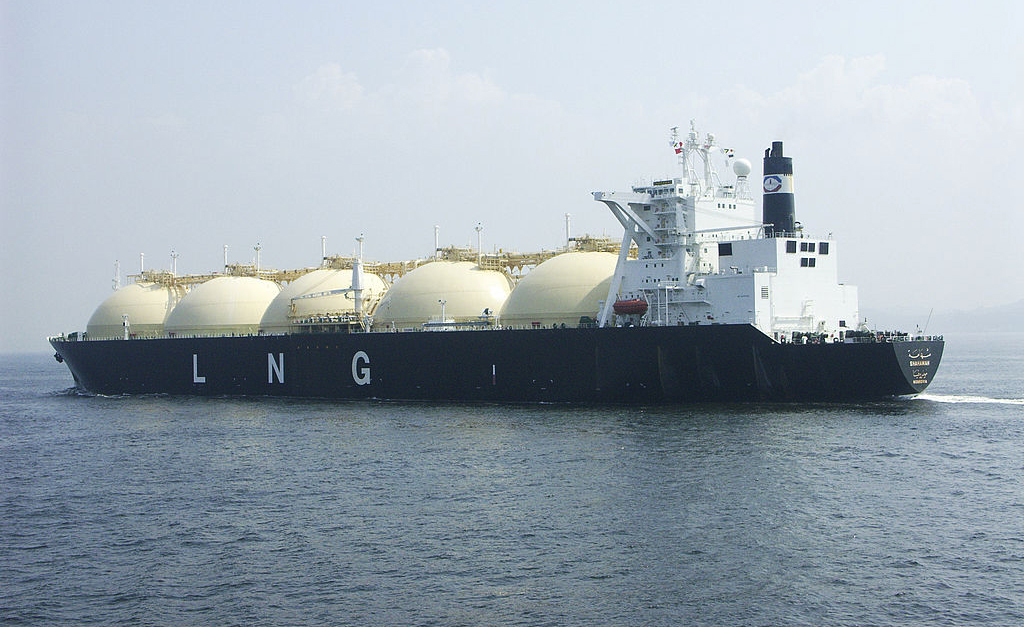Who will win the global competition for LNG?

Given the absence of imports from Russia and the competition with Asia on LNG, it will be very difficult for Europe to obtain gas supplies by 2023. The article by Sergio Giraldo
With the arrival of the cold season, gas consumption raises its head again, stocks begin to be gradually emptied and prices start to rise again. The monthly future on the TTF was hovering around 116 €/MWh yesterday, while daily deliveries, after the lows of 18.5 €/MWh at the end of October, returned to 114 €/MWh, indicating still very high volatility in the short term term.
MILD WEATHER HELP
The mild weather in October and at least half of November prevented the consumption of a couple of billion cubic meters for heating, thus leaving more gas available for the next three months. At the moment, 40 million cubic meters of gas per day are still arriving in Europe from the Ukrainian pipeline from Gazprom.
If winter temperatures remain in line with the historical average, if Russian gas, however little, will continue to arrive, if the plan to contain consumption is successful and if there are no other disturbances, Italy should arrive in spring however, at that point the warehouses were almost completely empty.
THE PROBLEM IS GETTING THE GAS IN 2023-2024
Instead, awareness is beginning to spread of what La Verità has anticipated on several occasions in recent months, namely the fact that the real problem for Europe and Italy will be to procure gas in 2023 and 2024.
Yesterday the Minister of the Environment and Energy Security Gilberto Pichetto Frati, in Milan for a conference, stated that “certainly for 2023 the worries are strong. The lack of Russian supplies means that during the summer we have to build up reserves, stockpiles and of course be ready for next winter.
On the other hand there is the question of price, we need to see what effect the European price cap has on the price of gas, which we will go to define during the week at the European Energy Council”. “We leverage international agreements that we have reached with Algeria, Middle Eastern countries and of course we already have an outlet to slightly increase national levies. But the national levy has more of a prospective value" continued the minister ( levy stands for production, ed.) , to then conclude that "on Thursday at the EU energy council we will close with this proposal from the Commission for a dynamic price cap, which it has a strong calming function because it intervenes on speculation”.
WHY THE PRICE CAP IS USELESS
Apparently, the Italian government is still a prisoner of self-hypnosis on the saving virtues of the gas price ceiling, which, as we know, will have no positive effect on price trends. But at this point, given the persistence in useless negotiations on a useless question, all that remains is the verification given by experience, in retrospect.
Whatever the outcome of the umpteenth discussion in Brussels, it will not change the situation of the fundamentals one iota, which sees an increasing demand for liquid gas and an offer unable to satisfy it. The storages were filled this year because, albeit intermittently, gas from Russia continued to arrive, also by sea in liquid form (LNG).
THE LNG COMPETITION WITH ASIA
Gas procurement for next year, and almost certainly also for 2024, without imports from sanctioned Russia, will be very complicated by the competitive dynamics that will open up with Asia and also between European countries. It would be much more appropriate for the discussions in the Belgian capital to focus on this. The point, however, is that the EU hesitates to speak openly about the energy crisis also for the next two years because in doing so it would have to admit its incapacity and at the same time deny itself on the reasonableness and feasibility of the European ecological transition. Therefore, we limit ourselves to a few shy and isolated voices.
By focusing on LNG to replace gas from Russia, the whole of Europe is competing with the largest Asian consumers (China, Japan and South Korea, but also the poorest Pakistan, India and Bangladesh), while at the same time the United States they will not be able to cover all the European needs.
In addition, many European companies would like contracts with shorter terms, perhaps for five years, at most ten, fearing that the rules of the Green Deal will then put them out of the market. Obviously, this makes negotiations difficult as producers require commitments for long periods, no less than fifteen or twenty years. This ambiguity is the source of a European weakness in negotiations with exporting countries such as the USA and Qatar.
THE AGREEMENT BETWEEN SINOPEC AND QATAR
A prime example is the news on an important agreement for the supply of LNG from Qatar to the Chinese Sinopec , from 2026 for a period of no less than 27 years, with volumes of approximately 5.5 billion cubic meters of gas per year, for a value of 60 billion dollars.
This is the game, simple and crude, that is being played in the gas world. Beyond the usual pro-European rhetoric that feeds on empty concepts such as sustainability and resilience, is the European Union able to play this game with the USA on one side and China on the other? It's time to prove it.
This is a machine translation from Italian language of a post published on Start Magazine at the URL https://www.startmag.it/energia/gnl-competizione-internazionale/ on Sat, 26 Nov 2022 06:18:13 +0000.
